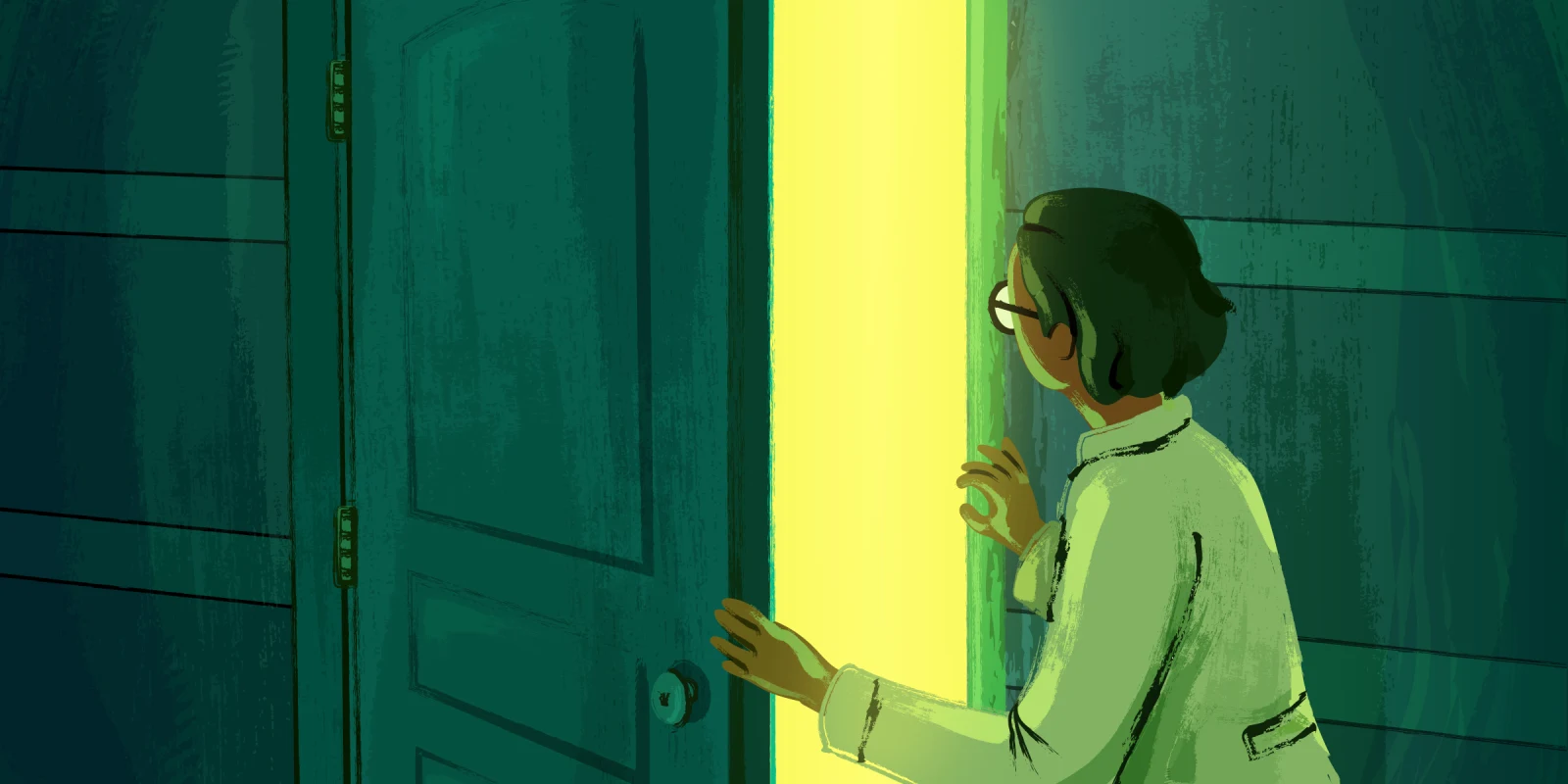Take a stroll through the COVID-19 calendar, back to March 2020. Before the anger, cynicism, and bone-crushing weariness set in. Back at the beginning of the pandemic, when we were preparing for a threat we didn’t understand and couldn’t treat. Try to recall how it felt when wearing a mask wasn’t a political statement, but a lifesaving luxury. Remember the uncertainty, the anxiety, the fear.
Enter the psychiatrists! This was the moment we hadn’t known we’d been waiting for. Sure, we can’t manage vent settings, but we are experts at managing difficult emotions. Emerging from obscurity in the shadow of the “real doctors,” we stepped to the forefront of physician mental health and wellness. Our reputation as “crazy or lazy” vanished as our peers looked to us for guidance and wisdom. We had arrived.
So, there I was, the medical director of our large urban hospital’s psychiatry department, medicine’s perimenopausal “It Girl,” when it happened. As I confidently led a hastily organized discussion on wellness for the internal medicine residents, one raised his hand. “I know we’re talking about resilience, but I’m not exactly sure what that is. How would you define resilience and how do we develop it?”
I froze. It was easy to play it fast and loose with terms like “self-care” and “wellness,” but I was pretty sure “resilience” had an actual definition . . . I just didn’t actually know what it was. Then, in one narcissism-puncturing second, I realized that although I could recognize resilience when I encountered it, I could neither accurately define nor explain how to cultivate the concept that I had spent the last 30 minutes promoting. Not only did the emperor have no PPE, she also had no clothes.
And then it hit me: Resilience is like pornography. I know it when I see it.
Using humor to deflect ignorance is a useful tactic. Parroting former Supreme Court Justice Potter Stewart’s famous phrase describing his threshold test for obscenity, I promised to return to discuss the concept in detail (assuming they ever wanted me back). I then did what any self-respecting doctor does when confronted with her own knowledge deficit: I succumbed to a shame spiral followed by a soothing deep dive into the literature.
So, now I can (and do) lecture both confidently and capably on resilience. And I still think the analogy stands. Resilience is like pornography.
The American Psychological Association defines resilience as the process of adapting well in the face of adversity, trauma, threat, and significant stress. Resilience encompasses both recovering from challenges, and using the experience as a source of personal growth. It’s a relatively simple concept, and we can all name people who seem to be able to survive, and even thrive, in the face of trauma or loss. We know it when we see it.
Identifying the combination of attributes, beliefs, and behaviors that underlie a resilient person’s ability to continue to engage in life, however, is more complicated. Like legislating the boundary between obscenity and protected speech, many of us would struggle to describe how to develop a subjective quality that lacks clearly defined parameters.
As it turns out, cultivating resilience is neither confounding nor complicated. Strategies to promote resilience fall broadly into four categories: physiologic optimization, stress management, social connectedness, and personal and collective efficacy. Once you break down the foundational elements of resilience, it’s astonishing how simplistic and formulaic this otherwise mysterious quality becomes. It’s kind of like pornography: seen one adult film, seen them all.
Fundamentally, cultivating resilience requires cultivating awareness. You must first acknowledge that you are experiencing stress, identify the aspects of the stressor that are most difficult for you, and anticipate how your stress will likely manifest. Do you have trouble sleeping? Drink too much? Lash out at others? Here’s a psychiatrist freebie: if you aren’t sure, ask your partner. I promise they can’t wait to tell you. Once you have a sense of your stress response, modifying your behaviors to increase resilience becomes a practice, not a puzzle.
Start by meeting your own basic needs, focusing on adequate sleep, hydration, and nutrition. Exercise every day, even if it’s limited to taking the stairs instead of the elevator or going for a walk after work. Put your phone away while you are walking, unclench your jaw, and take a few deep breaths. Take breaks to rest, relax, and engage in pleasurable activities. Limit your exposure to media, consuming enough to be informed but not so much that you start asking yourself why you even bother getting out of bed at all. Prioritize social connection and spending time with loved ones, as giving and receiving support decreases feelings of isolation. Perform check-ins with yourself, notice when you are struggling, and reach out to the people that love you to let them know how you’re feeling. Practice self-compassion by shifting your internal monologue to talk to yourself as you would a friend. Try saying things like, “this would be hard for anyone,” or “I did the best I could and I will learn from this” rather than castigating yourself for minor failings. Cultivate gratitude by intentionally taking time each day to reflect on something you cherish. Finally, remember that you are doing important work and find opportunities to recognize colleagues who are doing the same.
(Dork date night activity: If you and your partner are still together after you asked them about your maladaptive coping strategies, ditch the adult films, crack a beer, and create personal resilience plans together. Share them, and let the fun begin!)
Now that I’ve taken you Behind the Green Door of resilience, I hope you have learned, as I have, that the only thing mystifying about resilience is that it seemed so mysterious in the first place. Adapting well in the face of adversity requires understanding some basic principles, being willing to modify behavior, and prioritizing your own well-being. Ultimately, building resilience is a habit — just like pornography, only one you can talk about at work.
What does “resilience” mean for you? Share your personal resilience plan in the comments!
Elizabeth LaRusso, MD, is a Harvard-trained psychiatrist who specializes in women's mental health and physician wellness. She lives with her family in Minneapolis. Dr. LaRusso is a 2021–2022 Doximity Op-Med Fellow.
Illustration by Diana Connolly







